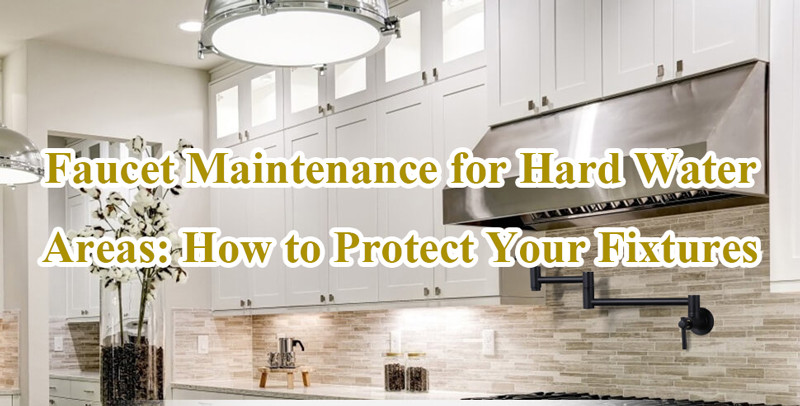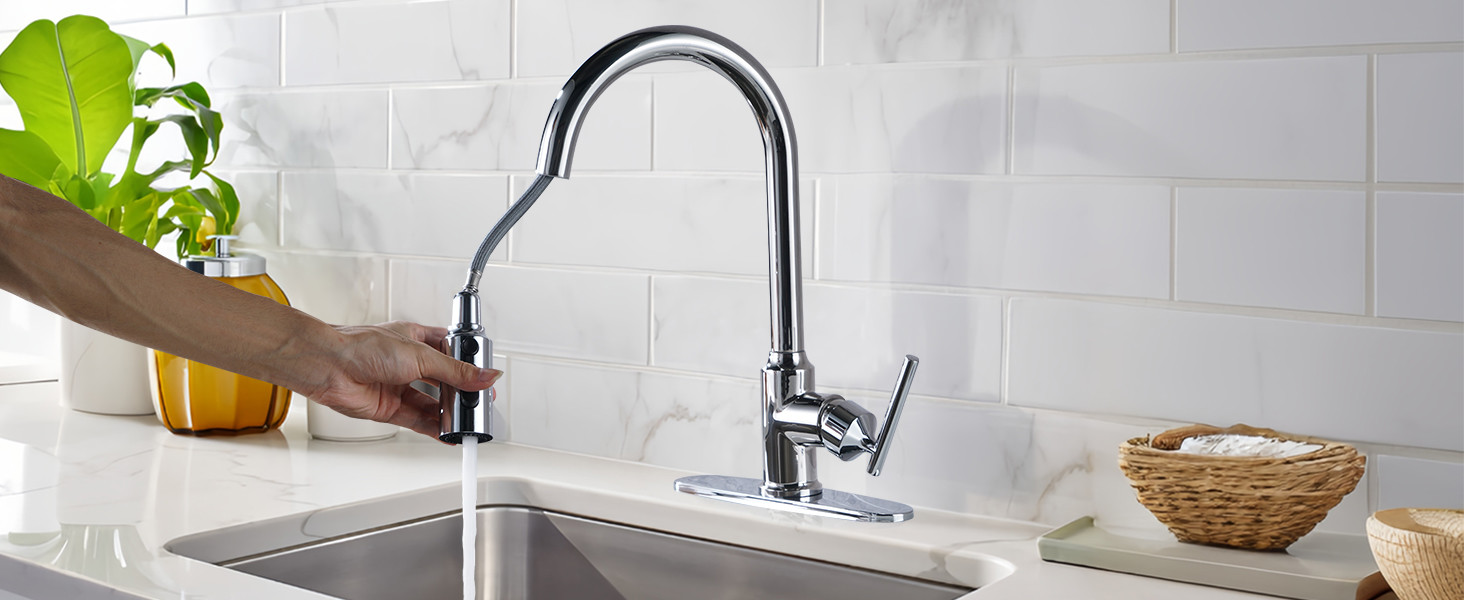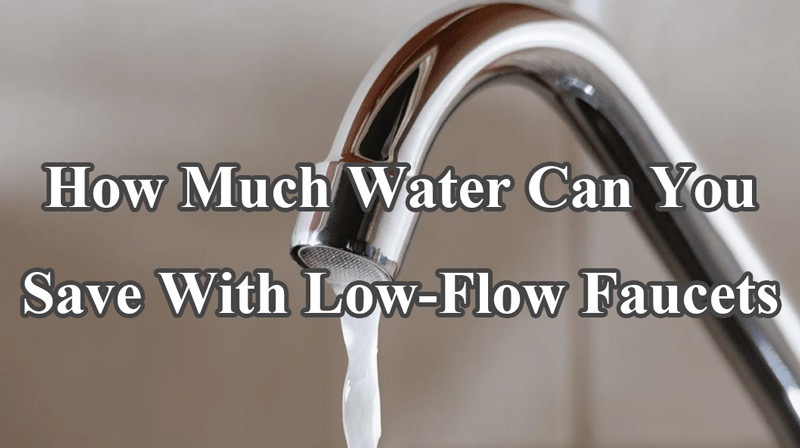
Living in an area with hard water can present unique challenges for homeowners, especially when it comes to maintaining plumbing fixtures like faucets. Hard water contains high levels of minerals such as calcium and magnesium, which can cause limescale buildup and other forms of mineral deposits on your faucets over time. These deposits not only make your fixtures look unsightly, but they can also reduce the efficiency of your plumbing and shorten the lifespan of your faucets.
In this post, we’ll explore the effects of hard water on faucets, common problems caused by mineral deposits, and practical solutions for faucet maintenance in hard water areas. By following these tips, you can protect your faucets from the damaging effects of hard water and ensure they remain functional and aesthetically pleasing for years to come.
Understanding Hard Water and Its Effects on Faucets
Hard water is simply water that contains a high concentration of dissolved minerals, primarily calcium and magnesium. When hard water flows through your faucets, these minerals can accumulate on the surface of the fixtures as water evaporates. Over time, this leads to the formation of stubborn limescale deposits, which can create a chalky or cloudy appearance on faucets, showerheads, and sink drains.
The build-up of limescale and other mineral deposits can have several negative effects:
- Reduced Water Flow: Mineral deposits can clog aerators and spray heads, which restrict water flow and reduce the efficiency of your faucet. This can make your faucets seem less powerful or cause water pressure to drop significantly.
- Corrosion and Rust: Hard water can also contribute to corrosion, which may cause faucets to deteriorate or rust prematurely. This is especially true if the minerals are left to accumulate for long periods.
- Aesthetic Damage: The white, chalky build-up that forms on faucets can be difficult to remove and may stain the surface, making the fixtures look old and worn out even though they’re still functional.
The Importance of Regular Faucet Maintenance in Hard Water Areas
In areas with hard water, regular faucet maintenance is essential to keep your fixtures in good working order and extend their lifespan. Here’s how you can protect your faucets from the damaging effects of hard water:
1. Regular Cleaning to Prevent Mineral Build-Up
One of the simplest and most effective ways to protect your faucets from hard water damage is by cleaning them regularly. The longer the mineral deposits are left to accumulate, the harder they become to remove.
How to Clean Faucets in Hard Water Areas:
- Use Vinegar: Vinegar is a natural and effective cleaner for removing mineral deposits. Soak a cloth or paper towel in white vinegar and wrap it around the faucet or the affected areas. Leave it to sit for about 30 minutes to an hour, then scrub the area with a soft cloth or sponge. For stubborn deposits, you can also pour vinegar directly into a spray bottle and apply it to the affected area, letting it sit before wiping it clean.
- Baking Soda Paste: If the vinegar alone isn’t enough, mix baking soda with water to form a paste. Apply the paste to the faucet and let it sit for 10–15 minutes before scrubbing away the deposits with a non-abrasive sponge or brush. Baking soda is slightly abrasive but gentle enough to avoid scratching the surface of most faucets.
- Commercial Cleaners: There are also commercial cleaners available that are specifically designed to remove mineral deposits. Look for a cleaner that is safe for the finish of your faucets (especially if you have a delicate finish like matte black or polished chrome).
Frequency of Cleaning:
Ideally, you should clean your faucets every 1–2 weeks if you live in a hard water area. This will help prevent mineral deposits from building up to the point where they’re difficult to remove. If you’re unable to clean them that often, try to do so at least once a month.
2. Install Faucet Aerators with Built-In Filters
Faucet aerators are small devices that screw onto the end of your faucet spout and help regulate water flow, reduce splashing, and improve water pressure. Many faucet aerators also come with built-in filters that can help trap some of the minerals in hard water before they reach your faucet.
Benefits of Aerators with Filters:
- Reduced Mineral Build-Up: By filtering out minerals before they reach the faucet, aerators can help reduce the amount of hard water buildup on your fixtures.
- Improved Water Flow: Aerators can help improve water flow by ensuring a smooth and even distribution of water, preventing clogs that might otherwise restrict flow.
Faucet aerators are inexpensive and easy to install, making them an excellent solution for hard water problems. Just make sure to clean them regularly, as mineral deposits can build up in the aerator screens, reducing their effectiveness.
3. Use a Water Softener System
If you’re dealing with particularly severe hard water, you may want to consider installing a water softener system for your entire home. A water softener works by replacing the calcium and magnesium in the water with sodium or potassium ions, effectively “softening” the water and preventing the formation of mineral deposits on faucets and other plumbing fixtures.
Benefits of a Water Softener:
- Protection for Faucets and Pipes: A water softener will not only protect your faucets but also your entire plumbing system, including pipes, water heaters, and dishwashers.
- Improved Water Quality: Softened water is generally gentler on your skin and hair, making it a good choice for households with sensitive skin or people who experience dryness or irritation from hard water.
Water softeners can be installed as a whole-house system or as point-of-use devices for specific faucets (e.g., kitchen or bathroom faucets). While they require a larger upfront investment, they can significantly reduce the maintenance needed for faucets in the long run.
4. Protecting Faucet Finishes
Hard water can cause pitting, discoloration, and corrosion of faucet finishes over time, especially if mineral deposits are left unchecked. To prevent this, it’s essential to choose a faucet finish that’s resistant to hard water damage.
Recommended Faucet Finishes for Hard Water Areas:
- Brushed Nickel or Stainless Steel: These finishes are more resistant to mineral buildup compared to polished chrome or brass, making them a good choice for hard water areas.
- Matte Finishes: Matte black and matte gold finishes tend to show fewer water spots and mineral deposits than shiny finishes, making them easier to maintain in hard water conditions.
In addition to choosing the right finish, applying a protective layer, such as a water-repellent coating or wax, can help prevent mineral deposits from sticking to your faucet.
5. Be Mindful of Water Pressure
High water pressure can exacerbate the effects of hard water by causing more water to flow through your faucet and increasing the likelihood of mineral buildup. If you notice that your faucet has low water pressure, it may be due to clogged aerators or mineral buildup. In that case, cleaning the aerator should improve water flow.
If your home has high water pressure, you may want to consider installing a pressure regulator to maintain a consistent flow and reduce the strain on your faucets and pipes.
Conclusion
Hard water can be tough on faucets, but with regular maintenance and the right precautions, you can protect your fixtures from the damaging effects of mineral buildup. By cleaning your faucets regularly, installing aerators, using a water softener, and choosing the right finishes, you can significantly extend the lifespan of your faucets and keep them looking and functioning like new.
While the upfront investment in water softeners or special faucet finishes may seem high, it’s an investment in the longevity and efficiency of your plumbing system. Regular maintenance and a few simple adjustments can go a long way in protecting your faucets from the challenges of hard water.
 WOWOW Faucets
WOWOW Faucets





您好!Please sign in